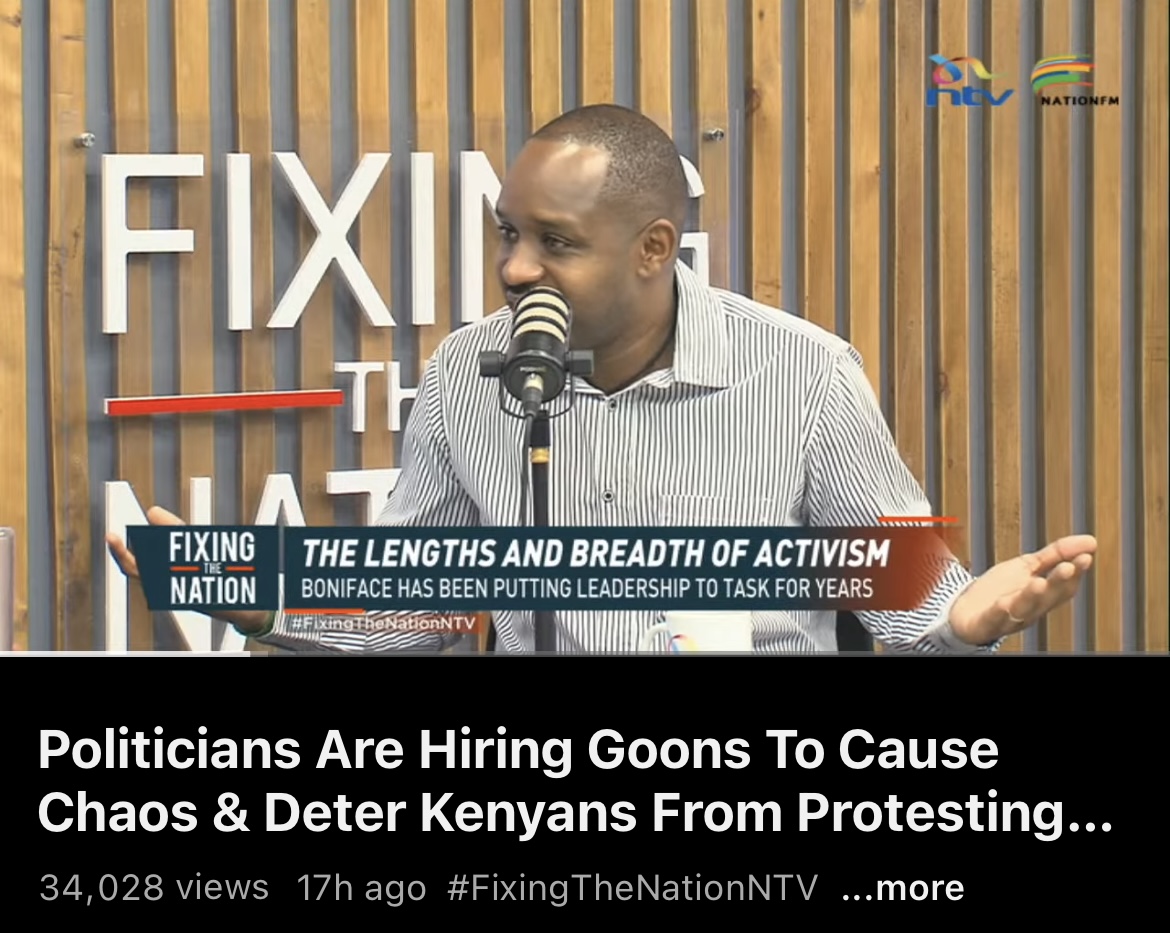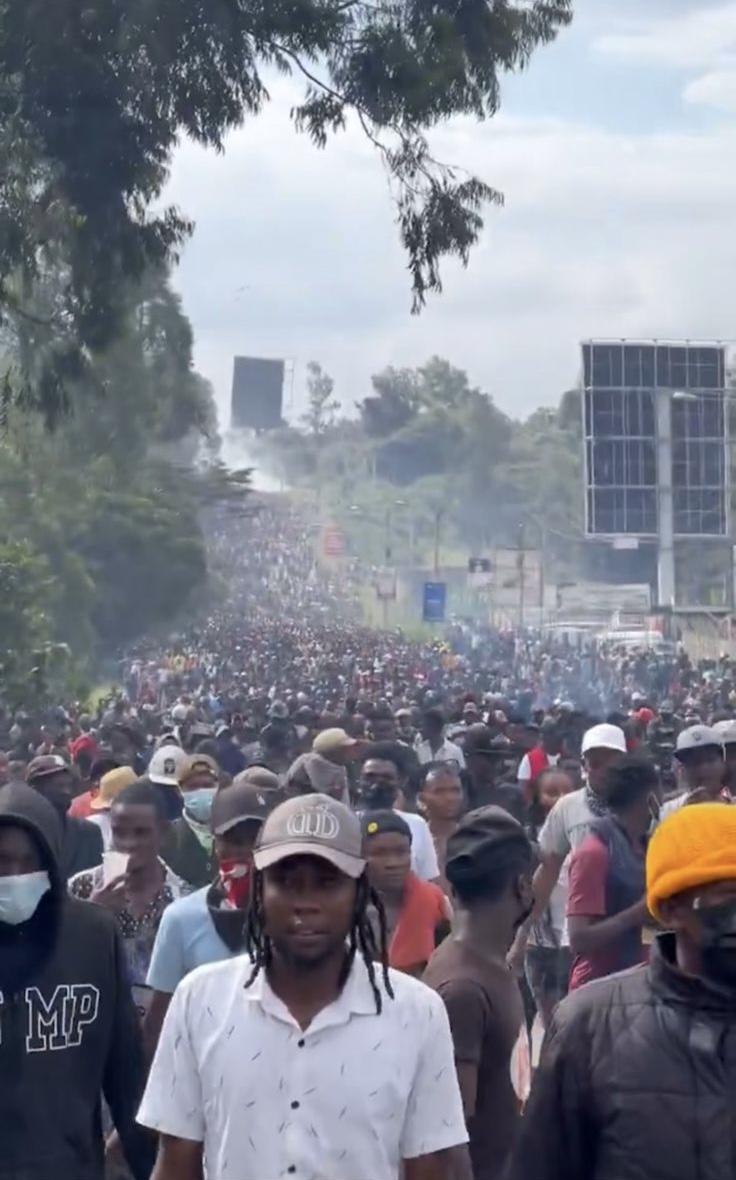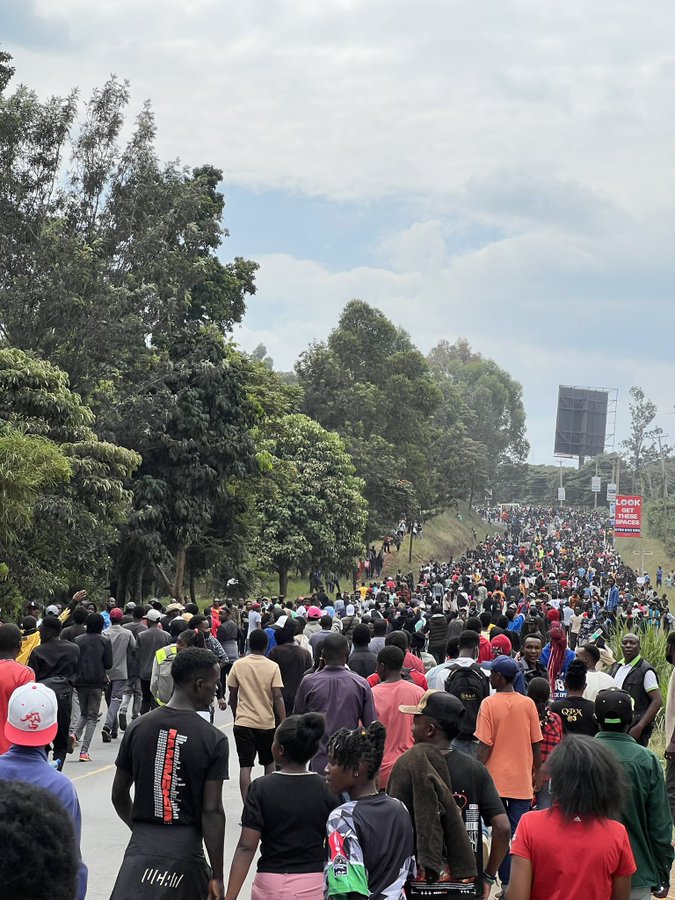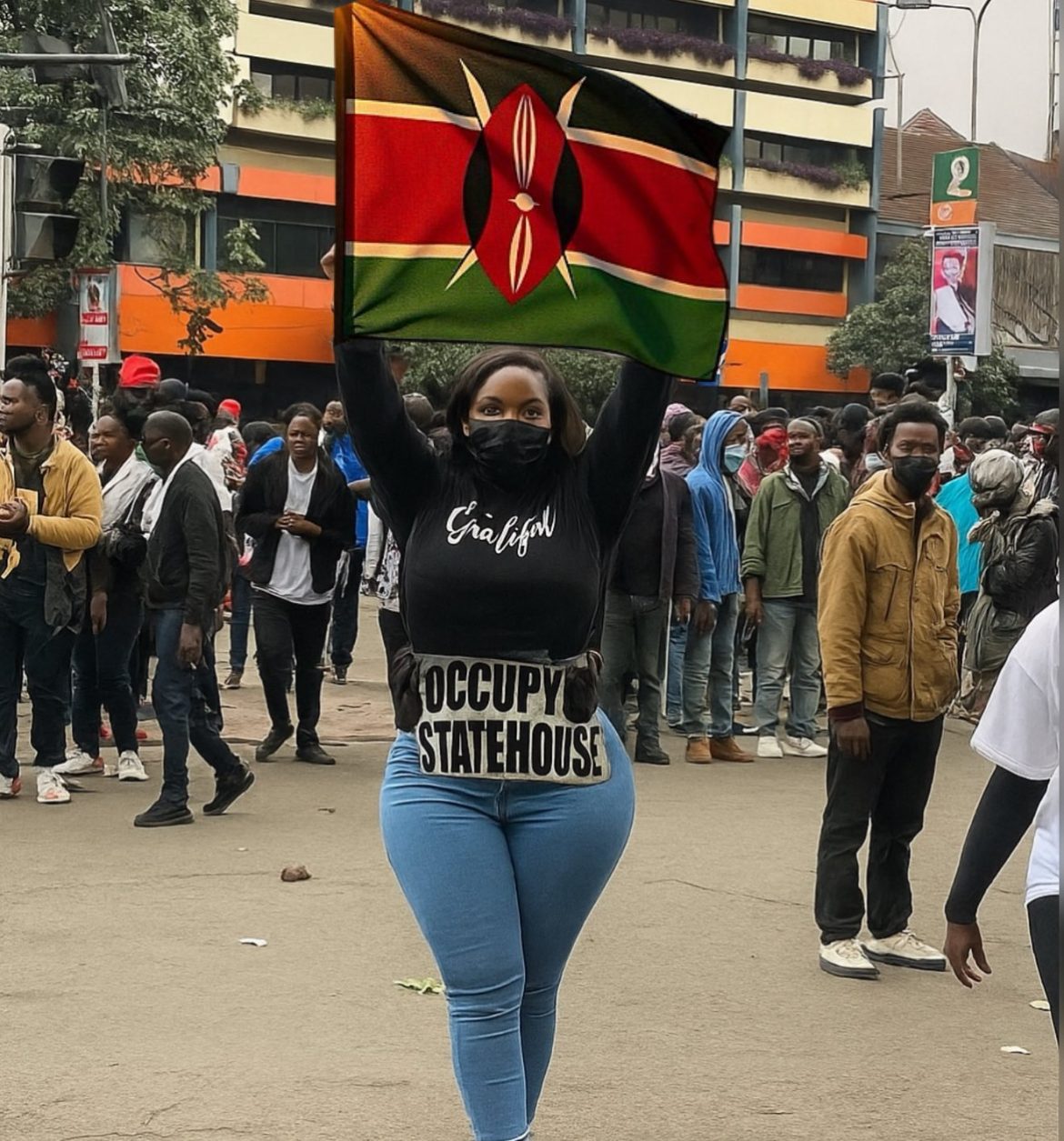On June 26th and 27th, 2025, Nation Media Group’s talk show Fixing The Nation hosted Busia Senator Okiya Omtatah and activist Boniface Mwangi, respectively, to discuss the Gen Z-led protests that erupted in Nairobi on June 25th, 2025.
These protests, marking the first anniversary of the deadly 2024 anti-tax demonstrations, saw thousands of young Kenyans take to the streets to demand justice for lives lost, an end to police brutality, and accountability for government corruption.
However, the platform provided by Fixing The Nation to Omtatah and Mwangi has raised serious concerns about the show’s adherence to journalistic credibility and ethical guidelines, as both guests used their airtime to undermine the legitimacy of the Gen Z protests, seemingly driven by personal grievances rather than a commitment to balanced discourse.
A Platform for Personal Agendas
The June 25th protests were a powerful demonstration of youth-led activism, with young Kenyans mobilizing through social media to honor those killed in the 2024 protests and demand systemic change. Yet, rather than amplifying the voices of the Gen Z protesters or engaging with the broader issues of governance and police accountability, Fixing The Nation chose to platform Omtatah and Mwangi, who used their appearances to cast aspersions on the protests’ legitimacy.
On June 26th, Okiya Omtatah, known for his legal activism, appeared to frame the protests as disorganized and infiltrated by “goons,” a narrative that aligns with government rhetoric dismissing the demonstrations as criminal acts.

Opponents of the June 25th protests like Busia Senator Okiya Omtatah got wall-to-wall coverage on mainstream media
Similarly, on June 27th, Boniface Mwangi echoed this sentiment, suggesting that the protests had been hijacked by opportunistic elements. Their critiques appeared to stem from frustration over their own parallel event – a planned wreath-laying ceremony and petition presentation at parliament – being overshadowed by the Gen Z-led movement.
This event, organized by established activists, was given a wide berth by the youth, signaling a shift in Kenya’s protest-activism scene away from-traditional figures like Omtatah and Mwangi.
By prioritizing these voices, Fixing The Nation failed to uphold the ethical principle of fairness, which requires journalists to present diverse perspectives, especially on contentious issues.
The show’s decision to host two guests with apparent personal stakes in discrediting the protests – potentially due to their waning influence among younger activists – undermined its credibility and skewed the narrative against the Gen Z movement.
The Absence of Pro-Protest Voices
Journalistic integrity demands balance, particularly when covering polarizing events like the June 25th protests.
Nation Media Group had an opportunity to invite guests who could speak to the motivations, grievances, and aspirations of the Gen Z protesters, many of whom have been praised for their decentralized, leaderless approach to activism.

Bitter and frustrated activist Boniface Mwangi attributed large crowds at the June 25th protests to politicians and not an organic uprising
Representatives from the youth-led movement could have provided a counterpoint to Omtatah and Mwangi’s narratives, offering insights into the protests’ goals and the challenges faced by demonstrators.
Instead, Fixing The Nation chose to amplify a one-sided perspective that aligned with the government’s efforts to discredit the protests, thereby failing to reflect the diversity of views within Kenya’s socio-political landscape.
The absence of pro-June 25th voices was particularly glaring given the protests’ significance. Young Kenyans have increasingly turned to social media platforms like TikTok and X to organize and share their demands, bypassing traditional gatekeepers like politicians and established activists.
This shift has challenged the influence of figures like Omtatah and Mwangi, who have historically dominated Kenya’s activism space.

The huge masses on Kiambu Road indicate the organic nature of protests away from the grip of commercial activists
By not including voices that represent this new wave of activism, Fixing The Nation missed a chance to engage with the evolving dynamics of Kenya’s protest culture and instead gave undue weight to narratives that dismissed the youth movement as chaotic or illegitimate.
Ethical Lapses and the Role of Legacy Media
The ethical guidelines of journalism, as outlined by organizations like the Media Council of Kenya, emphasize impartiality, accuracy, and the responsibility to avoid harm. By allowing Omtatah and Mwangi to malign the Gen Z protests without providing a platform for countervailing perspectives, Fixing The Nation risked perpetuating a narrative that could further marginalize young activists and embolden state repression.
The show’s failure to challenge or contextualize the guests’ claims – such as Mwangi’s assertion that the protests were infiltrated by “goons” – represents a departure from the duty to verify information and present a balanced account.
Moreover, Nation Media Group’s broader coverage of the protests has been criticized for lagging behind digital platforms in engaging younger audiences.
A 2025 study by Odipo Dev noted that legacy media outlets like Nation and The Standard struggle to compete with the immediacy and interactivity of social media, where platforms like TikTok and YouTube have become primary sources of news for 77% and 59% of Kenyans, respectively.

Mainstream media want to suppress such images of unity and cohesion and instead perpetuate the myth that protests are violent and unnecessary
By failing to adapt to these shifts and prioritizing established figures over emerging voices, Fixing The Nation risks alienating the very demographic driving Kenya’s socio-political change.
A Missed Opportunity for Constructive Dialogue
The Gen Z protests of June 25th, 2025, were a critical moment in Kenya’s ongoing struggle for accountability and good governance. Rather than fostering a constructive dialogue that could bridge generational divides and explore the root causes of the protests, Fixing The Nation allowed its platform to be used to undermine the movement.
The show could have invited a diverse panel, including organizers from the youth-led protests, to discuss the demonstrations’ impact and the challenges of maintaining peaceful demonstrations in the face of police violence. Such an approach would have aligned with the principles of ethical journalism, which call for amplifying marginalized voices and fostering public understanding.
Nation Media Group has a responsibility to uphold its reputation as a leading media house in Kenya by ensuring that its programming reflects the diversity of perspectives in the country.

The public have recalled their agency from commercial activists and are now charting their own destiny
The decision to platform Omtatah and Mwangi, whose critiques appeared driven by personal grievances over their diminishing influence, was a missed opportunity to engage with the Gen Z movement in a meaningful way.
By failing to include pro-protest voices, Fixing The Nation not only compromised its journalistic credibility but also contributed to a narrative that risks further alienating Kenya’s youth.
Conclusion
As Kenya navigates a pivotal moment in its socio-political history, legacy media outlets like Nation Media Group must rise to the occasion by adhering to the highest standards of journalistic ethics.
Fixing The Nation’s coverage of the June 25th, 2025, protests fell short of these standards by providing a platform for Okiya Omtatah and Boniface Mwangi to malign the Gen Z movement without balancing their views with those of the protesters themselves.
This lapse not only undermined the show’s credibility but also highlighted the broader challenges facing traditional media in remaining relevant in a rapidly evolving digital landscape.
Nation Media Group must take steps to ensure that future coverage prioritizes fairness, inclusivity, and the amplification of diverse voices to truly contribute to “fixing the nation.”

